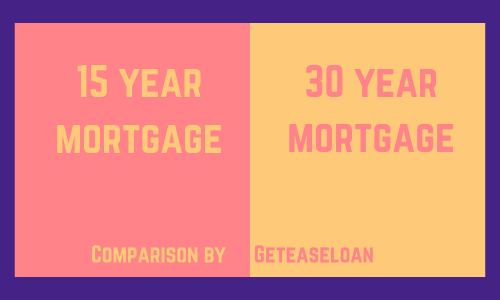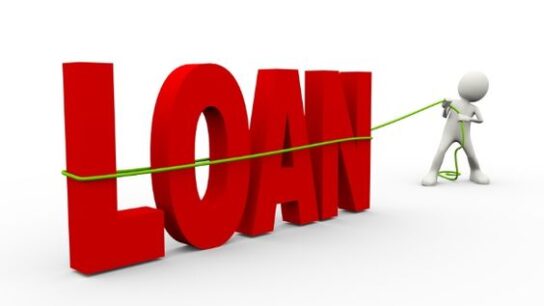When it comes to purchasing a home, one of the most critical decisions you’ll make is choosing the right mortgage. The 15 or 30 year mortgage dilemma is a common one among prospective homeowners. Whether you’re pondering whether a 15 year or 30 year mortgage suits you best or trying to figure out which term is better, understanding your options will help you make an informed choice. In this blog post, we’ll explore the 15 year or 30 year mortgage options, compare their pros and cons, and guide you on how to decide if you should get a 15 year mortgage or 30 year mortgage.
What is a 15-Year Mortgage?
A 15 year mortgage is a loan that requires you to pay off the full amount within 15 years. This type of mortgage typically comes with higher monthly payments compared to a 30-year mortgage but offers several key benefits.
Advantages of a 15-Year Mortgage
- Lower Interest Rates: Lenders often offer lower interest rates on 15 year mortgages compared to 30-year loans.
- Faster Equity Building: With a 15 year mortgage, you build equity in your home more quickly. Higher monthly payments mean you’re paying down the principal faster, which can be advantageous if you plan to sell or refinance in the future.
- Less Interest Paid Over Time: Since the loan term is shorter, you’ll pay significantly less in interest compared to a 30 year mortgage.
- Debt-Free Sooner: One of the most appealing aspects of a 15 year mortgage is that you’ll be debt-free sooner. This can provide peace of mind and financial freedom as you approach retirement.
Disadvantages of a 15-Year Mortgage
- Higher Monthly Payments: The major drawback of a 15 year mortgage is the higher monthly payment. This can strain your monthly budget and limit your flexibility for other expenses or savings.
- Qualification Requirements: Due to the higher payments, you may need a higher income or more substantial financial stability to qualify for a 15 year mortgage.
- Less Flexibility: The higher payments might limit your ability to invest in other financial opportunities or handle unexpected expenses.
What is a 30-Year Mortgage?
A 30 year mortgage is a loan that allows you to spread out the repayment over a 30-year period. This is the most common mortgage term and is often favored for its affordability and flexibility.
Advantages of a 30-Year Mortgage
- Lower Monthly Payments: One of the biggest advantages of a 30 year mortgage is the lower monthly payments. This can make homeownership more affordable and provide more room in your budget for other financial goals.
- Increased Affordability: With lower monthly payments, you might qualify for a larger loan amount, which could allow you to purchase a more expensive home.
- Flexibility in Payments: A 30 year mortgage offers more flexibility. You can make extra payments or pay off the loan early if your financial situation improves.
- Less Strain on Monthly Budget: The lower monthly payment can reduce financial strain, making it easier to manage other expenses or save for future goals.
Disadvantages of a 30-Year Mortgage
- Higher Interest Rates: Typically, 30 year mortgages come with higher interest rates compared to 15 year loans.
- More Interest Paid Over Time: Due to the longer term and higher interest rates, you’ll end up paying more in total interest over the life of the mortgage.
- Slower Equity Building: Building equity in a home takes longer with a 30 year mortgage.
Pros and Cons of 15 or 30 Year Mortgage
| Aspect | 15 Year Mortgage | 30 Year Mortgage |
|---|---|---|
| Monthly Payments | Pros: Higher payments contribute to paying off the loan faster. | Pros: Lower monthly payments make homeownership more affordable. |
| Cons: Higher monthly payments can strain your budget. | Cons: Payments are lower, but the loan takes longer to pay off. | |
| Interest Rates | Pros: Typically lower interest rates compared to a 30-year mortgage. | Cons: Usually higher interest rates than a 15-year mortgage. |
| Total Interest Paid | Pros: Less total interest paid over the life of the loan. | Cons: More total interest paid due to the longer loan term. |
| Equity Building | Pros: Builds equity in the home faster, which can be beneficial if selling or refinancing. | Cons: Builds equity more slowly, which could be a drawback if you plan to sell or refinance soon. |
| Loan Term | Pros: Shorter loan term means you’ll be debt-free sooner. | Cons: Longer loan term means you’ll be in debt longer. |
| Financial Flexibility | Cons: Less monthly cash flow due to higher payments. | Pros: More flexibility in your monthly budget due to lower payments. |
| Qualifying Requirements | Cons: Requires a higher income or more financial stability to qualify. | Pros: Easier to qualify for, as the payments are lower. |
| Financial Goals | Pros: Aligns with goals of paying off debt quickly and saving on interest. | Cons: May not align with goals if you prefer lower payments and budget flexibility. |
| Impact on Budget | Cons: Higher payments can limit ability to save for other goals or handle unexpected expenses. | Pros: Lower payments allow for more flexibility in handling other financial goals and expenses. |
Comparing the Two: 15 vs. 30 Year Mortgage

When deciding between a 15 year or 30 year mortgage, consider the following factors:
Monthly Payment Affordability
If you have a stable, high income and can comfortably handle higher monthly payments, a 15 year mortgage might be an attractive option due to the lower interest rate and quicker equity build-up. However, if you prefer lower monthly payments and more budget flexibility, a 30 year mortgage could be more suitable.
Total Interest Paid
A 15 year mortgage typically offers lower interest rates, which means you’ll pay less in interest over the life of the loan. On the other hand, with a 30 year mortgage, the longer term and higher interest rate will result in higher total interest payments.
Long-Term Financial Goals
Consider your long-term financial goals when choosing between a 15 year or 30 year mortgage. If your priority is to become debt-free sooner and you can manage higher payments, a 15 year mortgage might align with your goals. If you value having more disposable income and want to keep your monthly payments lower, a 30 year mortgage might be the better choice.
Should I Get a 15 or 30 Year Mortgage?
Many people ask, “Should I get a 15 year or 30 year mortgage?” or “Should I get a 15 year mortgage or 30 year mortgage?” This question is central to making a mortgage decision. If you’re contemplating, “Should I get a 30 year or 15 year mortgage?” it’s crucial to weigh the benefits and drawbacks of each option.
Factors to Consider When Deciding
- Is a 15 year or 30 year mortgage better?: This depends on your financial situation and goals. A 15 year mortgage is generally better if you want to save on interest and pay off your loan quickly. Conversely, a 30 year mortgage is better if you need lower monthly payments.
- Should I do a 15 year or 30 year mortgage? If you’re still undecided, consider using a 15 or 30 year mortgage calculator to compare the costs and benefits of each option.
- What’s better, a 15 year or 30 year mortgage? If you’re asking, “What is better, a 15 year mortgage or 30 year mortgage?” remember that both have their advantages and are suited to different financial situations.
15 Year or 30 Year Mortgage for Investment Property
If you’re considering a mortgage for an investment property, you might be asking, “What about a 15 or 30 year mortgage for investment property?” or “Which is better, a 15 or 30 year mortgage for rental property?”
- 15 or 30 year mortgage on rental property: For rental properties, a 30 year mortgage might be advantageous due to the lower monthly payments and potential for higher rental income.
- 15 or 30 year fixed mortgage: Fixed-rate mortgages can provide stability, so choosing between a 15 or 30 year fixed mortgage depends on whether you prioritize lower payments or paying off the loan quickly.
15 Year Mortgage or 30 Year Mortgage with Extra Payments
Another consideration is whether to choose a 15 year mortgage or 30 year mortgage with extra payments. If you opt for a 30 year mortgage but make extra payments, you might achieve similar benefits to a 15 year mortgage, such as paying off your loan faster and saving on interest.
Is it Better to Do a 15 or 30 Year Mortgage?
Many people wonder, “Is it better to do a 15 or 30 year mortgage?”. If you’re financially comfortable and want to pay off your loan quickly, a 15 year mortgage might be the right choice. However, if you prefer lower monthly payments and more flexibility, a 30 year mortgage could be better.
Which is Better: 15 or 30 Year Mortgage?
When you’re trying to decide, “Which is better, a 15 year or 30 year mortgage?” consider your long-term financial plans, the impact on your monthly budget, and how quickly you want to build equity.
Conclusion
Choosing between a 15 year or 30 year mortgage is a significant decision that can impact your financial future. Whether you’re contemplating whether you should get a 15 year mortgage or 30 year mortgage, or trying to determine what is better, understanding your choices is crucial. By evaluating your options and utilizing tools like a 15 or 30 year mortgage calculator, you can make an informed decision that aligns with your long-term financial well-being. Whether you opt for the quicker payoff of a 15 year mortgage or the lower payments of a 30 year mortgage, knowing the pros and cons will help you achieve your homeownership dreams while maintaining financial stability.
Additional Resources
For more information on 15 or 30 year mortgage options, consider visiting the following resources:
- Investopedia – Mortgage Terms Explained
- NerdWallet – 15-Year vs. 30-Year Mortgage
- The Mortgage Reports – Choosing the Right Mortgage
FAQ
1. What is better, a 15 or 30-year mortgage?
Choosing between a 15 or 30 year mortgage depends on your financial situation and goals. A 15 year mortgage generally offers lower interest rates and allows you to pay off your home faster, resulting in less total interest paid. However, it comes with higher monthly payments. In contrast, a 30 year mortgage provides lower monthly payments and greater budget flexibility but typically has higher interest rates and results in more interest paid over time. The better option will depend on whether you prioritize lower payments or paying off your loan more quickly.
2. Are there only 15 and 30-year mortgages?
No, there are more mortgage term options beyond just the 15 or 30 year mortgage. While these are common terms, you can also find 10, 20, and even 40-year mortgages. Each term comes with its own set of benefits and drawbacks regarding monthly payments, interest rates, and total interest paid. It’s essential to explore various options and choose the one that best fits your financial goals and circumstances.
3. Why should you get a 30-year mortgage?
Opting for a 30-year mortgage can be advantageous due to its lower monthly payments, which make homeownership more affordable and provide greater financial flexibility. A 30 year mortgage allows you to manage your budget more comfortably, save for other goals, or invest in opportunities. Additionally, the longer term can make it easier to qualify for a larger loan amount, potentially enabling you to purchase a more expensive home.
4. What length of mortgage is best?
The best length of mortgage depends on your financial goals and personal situation. A 15 or 30 year mortgage are the most common choices. A 15 year mortgage is ideal if you want to pay off your loan quickly and save on interest, while a 30 year mortgage is better if you prefer lower monthly payments and greater budget flexibility. Consider factors such as your income, expenses, and long-term financial goals when deciding on the mortgage length that suits you best.
5. What are the disadvantages of a 15-year mortgage?
A 15-year mortgage has several disadvantages, including higher monthly payments that might strain your budget. The higher payments can limit your financial flexibility and ability to save for other goals or handle unexpected expenses. Additionally, qualifying for a 15 year mortgage may require a higher income or more substantial financial stability compared to a 30 year mortgage.
6. What are the disadvantages of a 30-year mortgage?
The main disadvantages of a 30-year mortgage include higher interest rates and more total interest paid over the life of the loan compared to a 15 year mortgage. Additionally, because the term is longer, you build equity in your home more slowly. This could be a drawback if you plan to sell or refinance in the near future.
7. Why do most people take out a 30-year loan?
Most people choose a 30-year mortgage because of the lower monthly payments, which make homeownership more affordable and manageable within their budget. The extended term also allows for more flexibility in finances, enabling homeowners to allocate funds to other expenses or savings. The lower payments make it easier to qualify for larger loan amounts, which can be appealing for purchasing more expensive homes.
8. What are the risks of a 30-year mortgage?
The risks of a 30-year mortgage include paying more in total interest over the life of the loan due to higher interest rates and a longer term. Additionally, because you’re paying off the loan more slowly, you build equity in your home at a slower rate. This can be a disadvantage if you plan to move, sell, or refinance before the loan is paid off.
9. Can you go from a 15-year mortgage to a 30-year mortgage?
Yes, it is possible to refinance from a 15-year mortgage to a 30-year mortgage. This can reduce your monthly payments and improve budget flexibility. However, while this might offer short-term financial relief, it will extend the loan term and increase the total interest paid over the life of the mortgage. It’s important to carefully consider the long-term financial implications before making this change.





